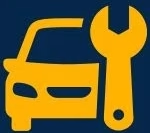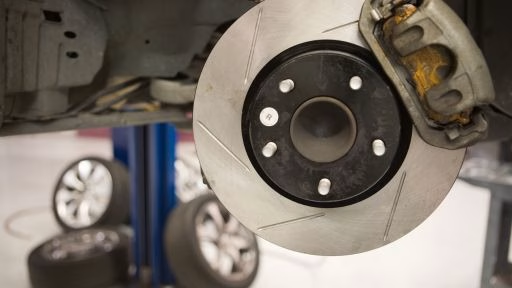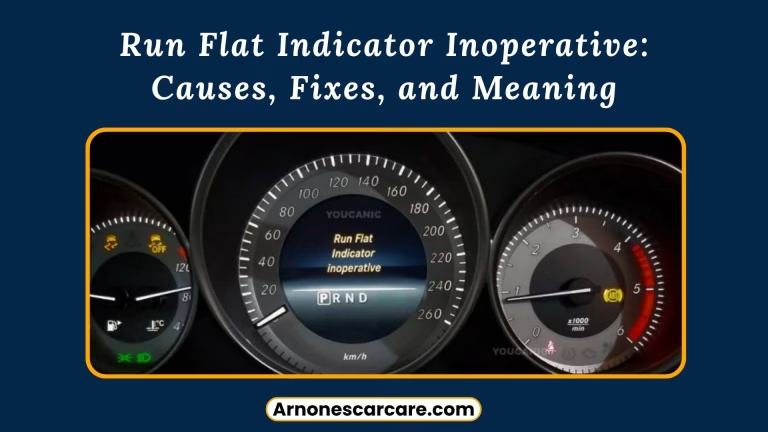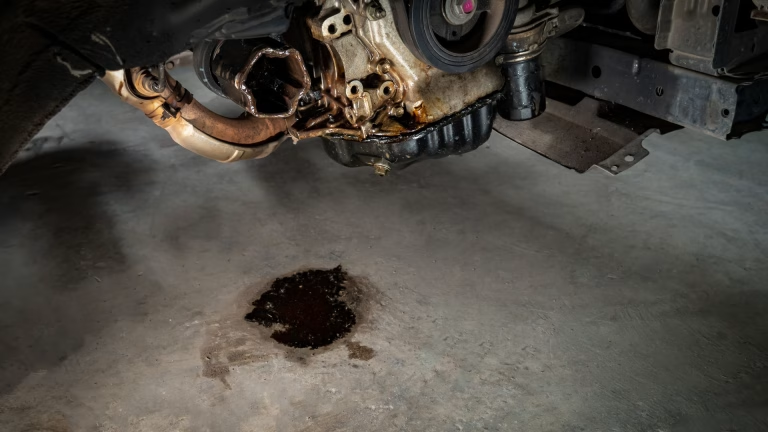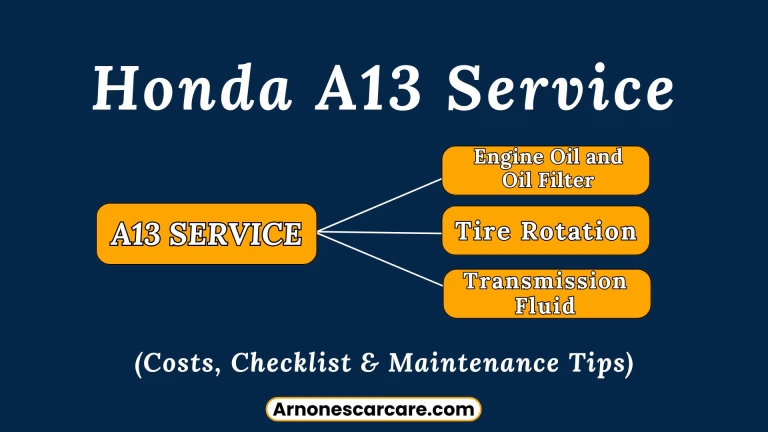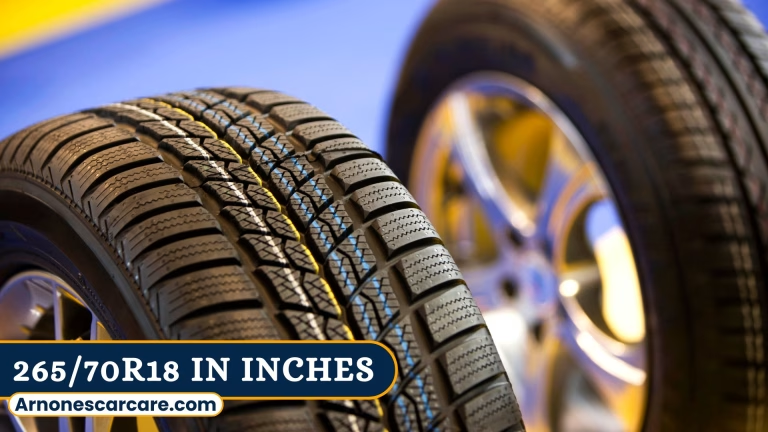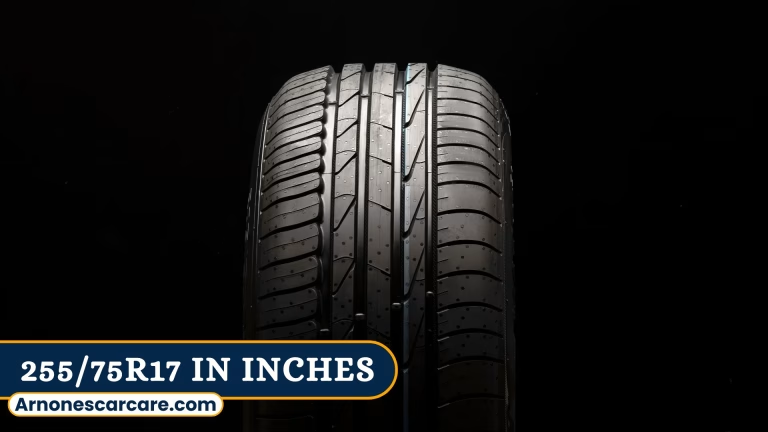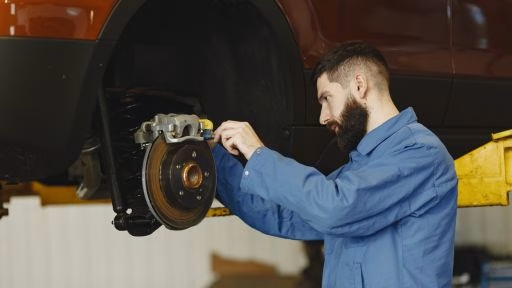
When it comes to vehicle maintenance, knowing how to diagnose common brake problems: squeaking grinding and vibrations is crucial for your safety on the road. These issues, though often ignored, can be signs that your brake system needs attention.
If left unaddressed, they could lead to more serious problems or even accidents. Understanding these common brake problems and knowing how to identify them early can help you maintain your car’s performance and avoid costly repairs.
In this guide, we’ll show you how to diagnose these common brake issues and offer simple solutions to fix them before they become serious.
Why Understanding Brake Issues Matters?
Knowing about brake issues keeps you safe on the road. Strange sounds, weak stopping power, or warning lights can signal serious problems. If you understand these signs early, you can fix them before they get worse. It also helps avoid costly repairs and accidents. A little knowledge can protect you, your passengers, and others on the road.
Understanding Common Brake Problems and What They Mean
Your car’s brakes are vital for stopping the vehicle safely. If you experience any unusual sounds or sensations while braking, it’s important to diagnose the problem quickly. Here are the top symptoms you may encounter:
- Squeaking: Often due to worn brake pads or moisture.
- Grinding: Pads may be completely worn out—urgent fix needed.
- Clicking: Could be loose parts or broken hardware.
- Squealing when turning: May point to rotor or caliper issues.
Each of these issues may point to different underlying problems, and recognizing them early can save you both time and money. Let’s take a closer look at each one.
Brake Squeaking: Causes and Fixes
If you hear a high-pitched squeak when you press the brake pedal, it’s a sign that something may not be quite right with your brake system. Squeaking brakes are one of the most common issues that drivers face.
Common Causes and Solutions of Brake Squeaking:
That high-pitched squeak when you press your brake pedal can be annoying. It can also be a warning sign. Most drivers worry when they hear brake noise. But not all squeaks mean serious trouble. Let’s look at why your brakes might be making noise and what you can do about it.
1. Your Brake Pads Are Getting Thin
Brake pads have a built-in warning system. When pads wear down to a certain point, a small metal piece touches the rotor. This creates that squeaking sound on purpose! It’s telling you to get new brake pads soon.
What to do: If the squeaking doesn’t stop after a few brake presses, get your pads checked. Waiting too long can damage your rotors. That means a more expensive repair later.
2. Morning Moisture and Rust
Overnight rain, dew, or high humidity can cause moisture to collect on your brake rotors. This creates a thin layer of rust on the metal surface. When you first drive in the morning, the pads scrape against this rust, causing temporary squeaking until the surface clears.
What to do: This is normal! The noise usually goes away after you use your brakes a few times. The friction clears off the rust.
3. Dirt and Dust Between Pads and Rotors
Brake dust naturally builds up during normal driving. Sometimes dirt, debris, or excessive brake dust gets trapped between your brake pads and rotors. These particles create friction in spots where they shouldn’t, causing uneven contact and squeaking noises when you apply pressure to the brakes.
What to do: The problem often fixes itself after a few stops. The debris gets pushed out through normal braking. If noise continues, a mechanic can clean your brake components.
4. Your Braking Style
Aggressive braking creates extreme heat that can change the surface of your brake pads. This heat forms a hard, smooth glaze on the pad material. Glazed pads don’t grip rotors properly and often squeak because they can’t create enough friction to stop quietly and effectively.
What to do: Try braking earlier and more gently. If the problem persists, you might need new brake pads and to have your rotors cleaned.
5. Metallic Brake Pads
Brake pads come in different materials. Semi-metallic pads contain steel, iron, or copper mixed with other materials. They’re durable and handle heat well, but the metal content can cause more noise than other types. The metal particles sometimes vibrate against the rotor during braking.
What to do: If the noise bothers you, consider ceramic brake pads next time. They’re quieter but cost more. Talk to your mechanic about options.
6. Drum Brakes Need Lubrication
Many vehicles have drum brakes on rear wheels. Inside these drums, brake shoes push against the drum to stop. Without proper lubrication at contact points between shoes and backing plates, metal-on-metal contact occurs during braking, creating squeaks or squeals that echo inside the drum.
What to do: Brake grease can fix this problem. A mechanic can apply it to the right contact points.
7. Poor Brake Pad Installation
If brake pads are installed incorrectly, it can cause uneven wear or improper contact with the rotor. This can lead to squeaking, grinding, or reduced braking efficiency. It may also result in premature wear of the brake pads and rotors, requiring more frequent replacements.
What to do: Have a professional mechanic check the installation to ensure the pads are correctly aligned. Proper installation is crucial for the pads to function effectively and to prevent further damage to other brake components.
8. Rusted Rotors
Rotors can rust over time, especially if the vehicle is not driven often or after exposure to moisture. Rust can create friction, causing noise when braking, and may also lead to uneven wear or reduced braking performance.
What to do: If the rust is minor, the rust will often wear off after a few brake applications. If the rust is severe, the rotors may need to be cleaned or replaced. A mechanic can inspect the rotors and advise on the best course of action.
Brake Grinding: Causes and Fixes
Brake grinding is a much more concerning issue than squeaking. It is a harsh, metal-on-metal sound that occurs when the brake pads have worn down completely, and the metal parts of the brake calipers are rubbing against the brake rotors.
When Do Brakes Usually Grind?
Your brakes might grind in these three main situations:
1. When You Press the Brake Pedal
This is the most common time to hear grinding. It happens when your brake pads are too thin. As you use your brakes, the pads wear down.
First, you’ll hear squealing. If you ignore this warning, it turns into a grinding noise. This means the metal backing plate is rubbing against your rotor. At this point, you need new brake pads right away.
2. While Driving at Normal Speed
Hear grinding when you’re not even braking? Small rocks or pebbles might be stuck between your caliper and rotor. Get this checked soon. Those little rocks can cause big damage to your brake system if left alone.
3. During Sudden Stops
When you slam on the brakes, you might hear grinding and feel the brake pedal shake. Don’t worry – this could be normal. It’s likely your Anti-Lock Braking System (ABS) doing its job. The ABS pumps the brakes quickly to prevent skidding, making that grinding sound.
Common Causes of Brake Grinding:
Brake grinding is often caused by issues that affect the braking system’s performance. Understanding these causes can help you identify the problem early and prevent further damage. Below are some of the most common reasons why your brakes might be making that annoying grinding noise.
1. Worn-Out Brake Pads
This is the number one cause of grinding brakes. Brake pads contain materials like graphite, metal, and copper. When they wear down completely, the metal backing plate scrapes against the rotor. Brake pads typically last 25,000 to 60,000 miles. When was your last replacement?
2. Damaged Brake Rotors
The brake rotors are those shiny discs your brake pads press against. They can get rusty or warped over time. A warped rotor makes your brakes squeak. A badly worn rotor creates a sharp screech you can feel in your steering wheel.
3. Bad Wheel Bearings
Wheel bearings help your tires spin smoothly. When they wear out, you might hear grinding from your wheels. Signs of bad bearings include:
- Steering wheel vibrations that come and go
- Uneven tire wear
Wheel bearing problems are rare and usually happen after 75,000-100,000 miles.
4. Cheap Brake Pads
Those budget brake pads might save money upfront but cost more in the long run. Cheap pads often contain more metal, making them noisy. They also wear out faster and can damage other brake parts.
5. Lack of Lubrication
Your brake system has many moving parts that need proper lubrication. Without it, parts like caliper bolts can rust and create grinding noises. Lubricating caliper bolts monthly can extend their life. Replacing them is cheap ($10-$20 plus labor) if needed.
6. Long Periods Without Driving
If your car sits unused for months, rust can form on brake components. This causes grinding when you start driving again. To prevent this, drive your car at least once a month, even if it’s just around the block.
7. Debris in the Brake Caliper
Small stones or other objects can get stuck in your brake caliper. This causes constant grinding and can damage your brake disc. Sometimes you can dislodge the object by slowly moving your car back and forth in a safe area. If that doesn’t work, see a mechanic.
How to Fix Brake Grinding: Temporary Solutions
When your brakes are grinding, it usually means the brake pads are worn out and need replacing. If you need a quick, temporary fix before getting them properly repaired, here are a few things you can try:
1. Remove Dirt and Debris
Check your brakes for dust, dirt, or small rocks. These can cause grinding noises. Use compressed air or a soft brush to clean around the brakes gently. Removing debris can sometimes stop the noise. Always be careful not to damage any parts while cleaning. It’s a simple but helpful step.
2. Lubricate Moving Parts
Apply brake lubricant to the back of the pads and caliper slides. This can help reduce grinding sounds for a short time. Do not put lubricant on the braking surface. Only moving parts should be lubricated. It’s a quick way to make brakes a little quieter until you get repairs.
3. Let Moisture Dry Out
Sometimes moisture can cause brakes to grind. Rain or puddles can leave water on the brakes. Drive gently and allow the brakes to dry naturally. The noise might go away once they are dry. It’s important not to brake hard during this time. Moisture problems are usually temporary.
4. Drive Carefully
When brakes grind, avoid sudden stops or hard braking. Drive slowly and brake gently. Less pressure on the brakes can reduce noise. This can help protect your brake parts for a short time. Remember, this is only a temporary fix. Get your brakes inspected as soon as possible.
5. Temporary Brake Pad Replacement
If you have the tools and experience, you can replace the brake pads yourself as a temporary solution. New pads will help reduce grinding and protect other brake parts until a full repair is done.
Important Reminder:
These tips are only temporary! Grinding brakes mean your braking system needs urgent attention. Always get your brakes checked and repaired by a professional mechanic as soon as possible. Ignoring the problem can cause serious damage and lead to expensive repairs — and most importantly, it can put your safety at risk.
Brake Vibrations: Causes and Fixes
Brake vibration means your car shakes when you press the brake pedal. This happens when the brake parts don’t work well together. It could be from worn brake pads, bent rotors, or loose parts. The brakes need all parts to work smoothly. If one part has a problem, you may feel it while braking.
Common Causes of Brake Vibrations:
Your car shouldn’t vibrate when you brake. If it does, something’s wrong. Here are the main causes:
1. Worn Brake Pads
Brake pads wear down over time. When they get too thin, they can’t grip properly. This causes shaking when you press the brake pedal.
Signs of worn pads:
- Squealing sounds
- Taking longer to stop
- Grinding noises
2. Damaged Rotors
Rotors are the metal discs your brake pads squeeze against. They can warp from heat or get uneven surfaces. Warped rotors make your steering wheel and car shake.
Why rotors warp:
- Hard braking that causes too much heat
- Driving in mountains
- Cheap or thin rotors
- Not changing pads on time
3. Stuck Brake Calipers
Calipers push the brake pads against the rotors. If they stick, one side might brake harder than the other. This causes pulling and shaking.
How to spot caliper problems:
- Car pulls to one side when braking
- One wheel feels hotter than others
- Uneven pad wear
4. Low Brake Fluid
Brake fluid transfers force from your foot to the brakes. Low fluid means air bubbles form in the lines. This can cause a soft pedal and shaking.
How to Fix Brake Vibrations
Brake vibrations can make driving uncomfortable and unsafe. Fixing them early can prevent bigger brake problems later.
Check Your Brake Pads
To check your brake pads, look through the wheel spokes. You should see at least 1/4 inch of pad material. Thin pads cause vibration when they can’t grip well. Don’t wait until you hear grinding – that means metal-on-metal contact. Replacing pads is simple at home with basic tools.
Resurface or Replace Rotors
If your rotors are warped, you have two options:
- Resurface them (grinding them smooth again)
- Replace them completely
For older cars or badly warped rotors, replacement is often better.
Fix Stuck Calipers
Stuck calipers make your car pull to one side when braking. To fix them, remove the caliper and clean it with brake cleaner spray. Apply special brake grease to the sliding pins. Other times, you might need new calipers.
Top Up Brake Fluid
Low brake fluid causes soft pedal feel and vibration. Open your hood and find the brake fluid reservoir – it’s usually near the driver’s side. Check if the level sits between “min” and “max” lines. Add the exact type listed in your manual. Don’t mix fluid types! Look for leaks if your fluid keeps getting low.
Get Expert Brake Problem Diagnosis Services Today!
Are you hearing squeaking, grinding, or feeling vibrations while braking? These common brake problems can affect your safety on the road, but don’t worry! Our team of experts is here to help you diagnose and resolve brake issues quickly and efficiently. Whether it’s worn-out brake pads, damaged rotors, or any other brake system issue, we ensure your vehicle stays in top condition. Schedule your appointment today and trust us to keep your car running smoothly, so you can drive with peace of mind. Book now for fast, reliable service!
Conclusion: Ensuring Your Safety
Diagnosing brake problems early can help you avoid expensive repairs and keep you safe on the road. If you experience squeaking, grinding, or vibrations while braking, don’t ignore them.
These symptoms can indicate problems with your brake pads, rotors, or other components that need immediate attention. For optimal safety, always ensure your brake system is well-maintained. Regular brake checks and timely repairs are crucial for preventing more severe issues down the road.
By knowing how to diagnose common brake problems: squeaking, grinding, and vibrations, you can stay ahead of potential issues and keep your vehicle in top condition.
